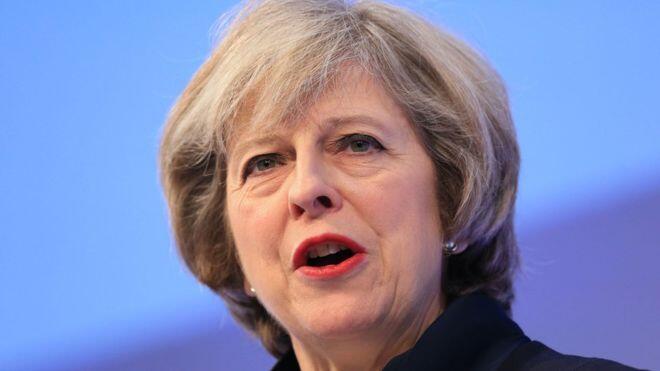Theresa May is pledging to help schools and companies in England deal with the “hidden injustice” of mental illness.
In a speech, the prime minister will announce extra training for teachers, more online self-checking for those with concerns and a review of services for children and teenagers.
Mental health experts said more funding was needed to improve services.
Mrs May’s speech comes as she outlines her plans to use the state to create a “shared society”.
She will promise to “transform” attitudes to mental health problems.
- Young women ‘highest mental health risk’
- One in four adults ‘has mental illness’
- Politics and jobs ‘swell youth anxiety’
The government says one in four people has a mental disorder at any time, with an annual cost of £105bn, and that young people are affected disproportionately.
During her speech, Mrs May will announce several measures:
- Every secondary school to be offered mental health first aid training
- Trials on strengthening links between schools and NHS specialist staff, including a review of children and adolescent services across the country, led by the Care Quality Commission
- Appointing mental health campaigner Lord Stevenson and Paul Farmer, chief executive of the charity Mind, to carry out a review on improving support in the workplace
- Employers and organisations will be given additional training in supporting staff who need to take time off
- More focus on community care, with an extra £15m towards this, and less emphasis on patients visiting GPs and A&E
- Expanding online services to allow symptom checks before getting a face-to-face appointment
- A review of the “health debt form”, under which patients are charged up to £300 by a GP for documentation to prove they have mental health issues
Addressing the Charity Commission, Mrs May will say: “For too long mental illness has been something of a hidden injustice in our country, shrouded in a completely unacceptable stigma and dangerously disregarded as a secondary issue to physical health.
“Yet left unaddressed, it destroys lives, it separates people from each other and deepens the divisions within our society. Changing this goes right to the heart of our humanity; to the heart of the kind of country we are, the values we share, the attitudes we hold and our determination to come together and support each other.”
The speech follows Mrs May’s announcement at the weekend that she wishes to create a “shared society”, with the state taking a greater role in ending “unfairness”.
She will say: “This is a historic opportunity to right a wrong, and give people deserving of compassion and support the attention and treatment they deserve. And for all of us to change the way we view mental illness so that striving to improve mental wellbeing is seen as just as natural, positive and good as striving to improve our physical wellbeing.”
Mind chief executive Mr Farmer said it was “important to see the prime minister talking about mental health”.
He added: “The proof will be in the difference it makes to the day-to-day experience of the one in four who will experience a mental health problem this year. Mental health is everyone’s business and we need to see sustained leadership to make sure services and support improve”.
“Having been neglected for decades, we need to see it made a priority for decades to come to make sure everyone with… problems can live the life they want to lead.”
But Philip Timms, a consultant psychiatrist in London, said there was a long way to go to improve mental health standards.
“Mental health is still very underfunded compared to other areas of medicine,” he told the BBC. “It generates probably 20-25% of the total disease burden, and yet the funding is 10-12% in this country.”
Mrs May’s emphasis on a “shared society” marks a contrast with her predecessor David Cameron’s “Big Society” agenda, which relied on voluntary organisations rather than state intervention.












